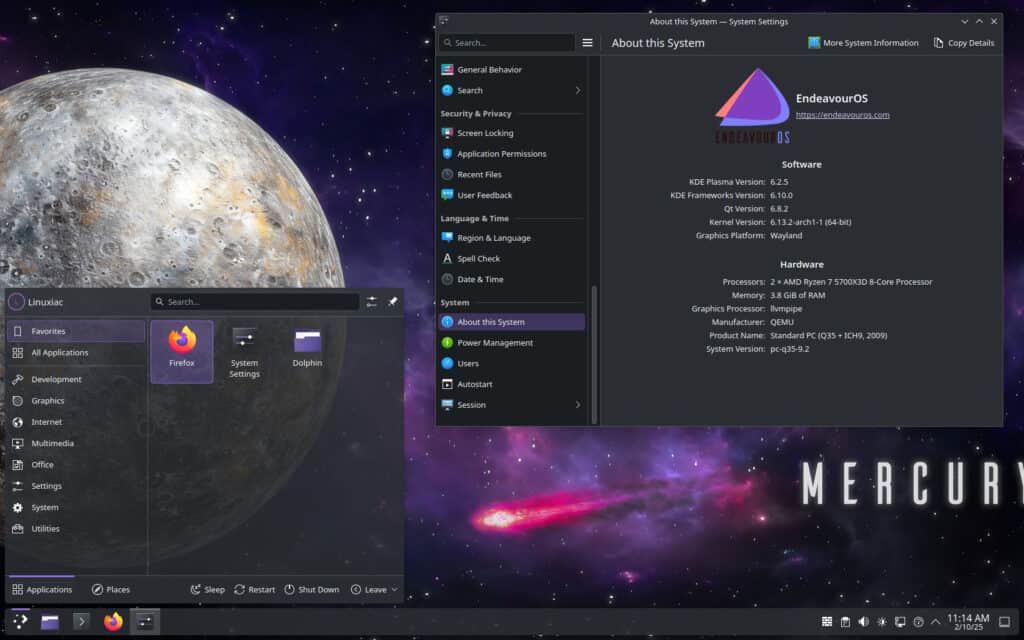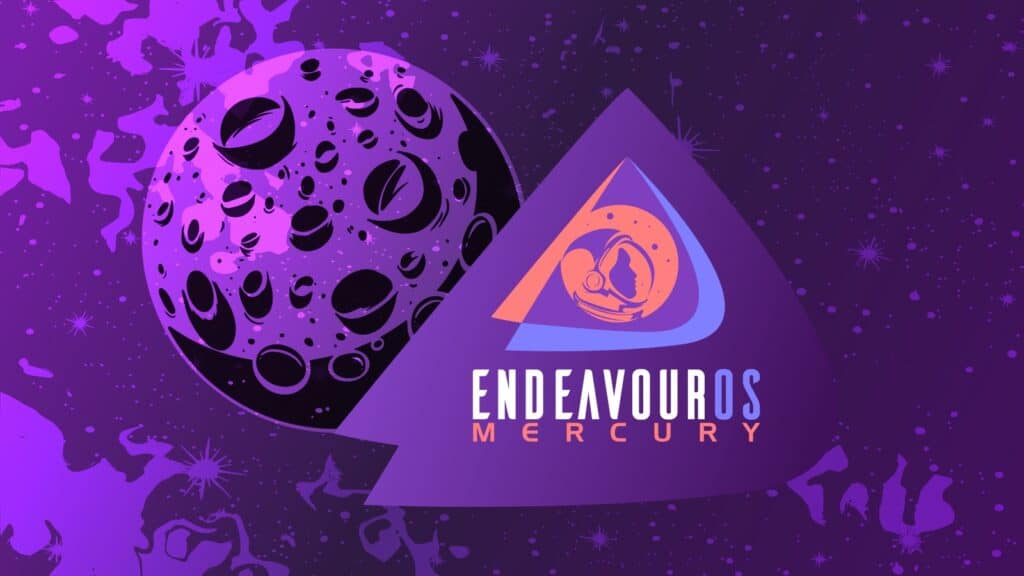Over four months after its latest Neo release, the Linux astronauts from the Arch-based EndeavoursOS project announced the availability of EndeavourOS Mercury.
Powered by Linux kernel 6.13 and building on the solid foundation of previous EndeavourOS ISOs, the new release ships with a set of updates and new features that significantly refine the installation process and user experience:
- Calamares 25.02: The latest iteration of the Calamares installer addresses several issues, including fixes for double entries in EFI selections and problems with the “replace Partition” option.
- Firefox 135.0: The most up-to-date browser release, with several small but important improvements.
- Linux kernel 6.13: Although the developers overcame a few wrinkles introduced by kernel 6.13, the new ISO runs smoothly.
- Mesa 24.3 and Xorg 21.1: Ensures a stable and optimized graphics environment.
- Nvidia 570.86: Helps users with NVIDIA GPUs enjoy better performance. More on that here.
Moreover, the live environment itself gets several noteworthy improvements. For instance, Mercury now includes a memory test feature for EFI-based systems and resolves issues related to BIOS/Legacy installs.
On the desktop side, being an Arch-based distro, this release brings only the latest and greatest from the KDE ecosystem. Users will find a Plasma 6.2.5 desktop environment accompanied by the KDE Gear 24.12.2 apps collection and Frameworks 6.10.
Additionally, dark theme defaults have been introduced across popular desktops—KDE (6.2), GNOME (47), Xfce (4.20), MATE (1.28), Budgie (10.9), and Cinnamon (6.4)—for a sleek, modern appearance right from the start.

For GNOME, changing from light to dark mode automatically updates wallpapers. Additionally, Xfce’s theme is now closer to the desktop environment’s default setup, preserving the familiar look and feel that many users appreciate.
A crucial point for current EndeavourOS users is that Mercury’s changes primarily affect the live environment, the Calamares installer, and fresh installations only. In other words, installing Mercury from scratch is unnecessary if you have regularly updated your existing EndeavourOS system.
However, it is worth noting that the Mercury ISO includes improving ranking mirror lists, ensuring that the chosen repositories reflect the user’s preferences even during the live session. For more information, see the release’s announcement.
If you opt for a fresh install, EndeavourOS can be downloaded directly from the project website’s home page.
